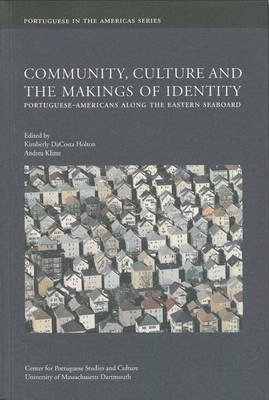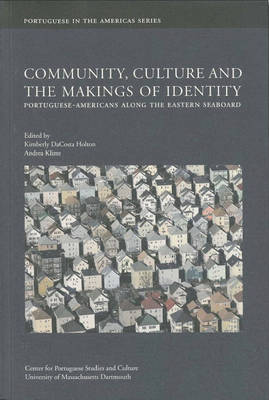
- Retrait gratuit dans votre magasin Club
- 7.000.000 titres dans notre catalogue
- Payer en toute sécurité
- Toujours un magasin près de chez vous
- Retrait gratuit dans votre magasin Club
- 7.000.0000 titres dans notre catalogue
- Payer en toute sécurité
- Toujours un magasin près de chez vous
Community, Culture and the Makings of Identity, 1
Portuguese-Americans Along the Eastern Seaboard
39,45 €
+ 78 points
Description
Community, Culture and the Makings of Identity brings together explorations of Portuguese as well as other Lusophone and Luso-African populations that have settled in the immigrant hubs of the port cities and towns along the Northeastern seaboard of the U.S. The contributing scholars offer insight from a wide range of disciplinary perspectives into the histories, cultures, and intertwined social dynamics of these immigrant communities. The still understudied Portuguese-American story--which includes multiple waves of immigration that span two centuries, ongoing connections with a global diaspora, and complex relationships with post-colonial populations--has much to offer to our understandings of transnational migration and subsequent processes of identity and community formation among immigrants and their descents. The contributors to this collection attend to questions about the meanings of citizenship and forms of national belonging; the role of expressive culture and media representations in process of identity formation; the factors shaping trajectories of social mobility and political representation; the complexly interconnected dynamics of work, gender and family in the immigrant context; and the formulations of racial and minority identities in this corner of the Portuguese disapora. The ethnographic richness and productive interplay of the contributions in this volume point to a whole array of new and as yet unexplored questions regarding the Portuguese-American and other interconnected communities.
Spécifications
Parties prenantes
- Editeur:
Contenu
- Nombre de pages :
- 652
- Langue:
- Anglais
- Collection :
- Tome:
- n° 11
Caractéristiques
- EAN:
- 9781933227276
- Date de parution :
- 01-05-09
- Format:
- Livre broché
- Format numérique:
- Trade paperback (VS)
- Dimensions :
- 147 mm x 224 mm
- Poids :
- 1043 g

Les avis
Nous publions uniquement les avis qui respectent les conditions requises. Consultez nos conditions pour les avis.





